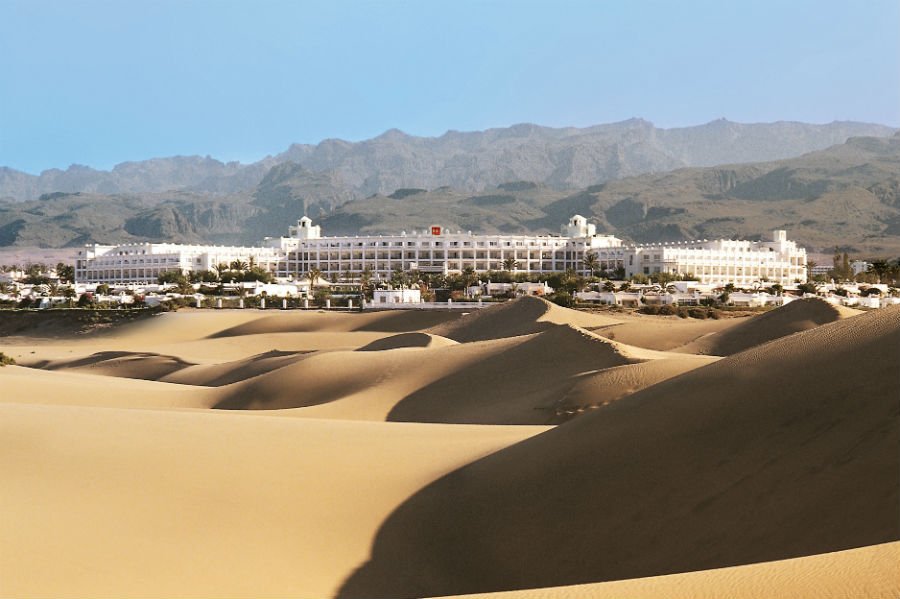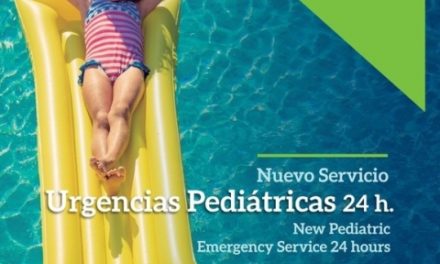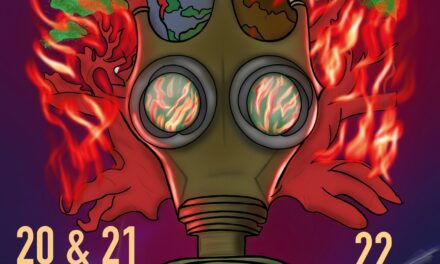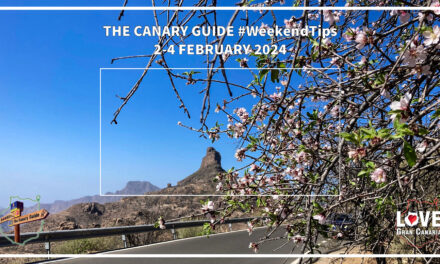 It is well known that Gran Canaria has some of the cleanest, most pristine beaches in the world, the island has been awarded more prestigious Blue Flags than any other in the Canary Islands archipelago and is a world leader in R+D+i for the renewable energies sector.
It is well known that Gran Canaria has some of the cleanest, most pristine beaches in the world, the island has been awarded more prestigious Blue Flags than any other in the Canary Islands archipelago and is a world leader in R+D+i for the renewable energies sector.
One of the many challenges that people who live here still need to overcome is our society’s reliance on plastic, and in particular the vast amount of single use plastic that gets thrown away by people from all walks of life whether resident or visitor, native or foreign.
Its important to remember that although the municipal town halls do an excellent job clearing and sorting waste, it is the responsibility of each and every citizen to contribute, helping whenever possible to remove rubbish from the environment. All of us.
 Being a small island in the Atlantic ocean means that any plastic that is dumped into our environment is very likely to end up in the ocean, sooner rather than later, and of course being dependant as we are on tourism we are also likely to feel the negative effects long before most on mainland Europe ever do. So more and more organisations are this year committing themselves to not only helping the public to hugely reduce the amount of single-use plastics that are being used, informing people of the scientifically proven problems that are building, but grass roots groups have been gathering people together regularly to collect discarded plastic from road sides and public areas, so as to really have a positive effect not only moving forward, but in cleaning up waste materials that have already entered the environment to support the work already being done by local town halls and the Cabildo de Gran Canaria.
Being a small island in the Atlantic ocean means that any plastic that is dumped into our environment is very likely to end up in the ocean, sooner rather than later, and of course being dependant as we are on tourism we are also likely to feel the negative effects long before most on mainland Europe ever do. So more and more organisations are this year committing themselves to not only helping the public to hugely reduce the amount of single-use plastics that are being used, informing people of the scientifically proven problems that are building, but grass roots groups have been gathering people together regularly to collect discarded plastic from road sides and public areas, so as to really have a positive effect not only moving forward, but in cleaning up waste materials that have already entered the environment to support the work already being done by local town halls and the Cabildo de Gran Canaria.
 World Environment Day has been celebrated around the world every year on the 5th June since 1974. It is the United Nation’s most important day for raising global awareness and encouraging the general public to do something positive that can help the planet. Every year there is a different theme, and 2018 has been named ‘beating plastic pollution’ year.
World Environment Day has been celebrated around the world every year on the 5th June since 1974. It is the United Nation’s most important day for raising global awareness and encouraging the general public to do something positive that can help the planet. Every year there is a different theme, and 2018 has been named ‘beating plastic pollution’ year.
This is no longer just a problem for future generations, it is a serious problem right now, and this needs to be the year that we begin to turn back the tide ofwaste plastics. 2018 is when we all, each and everyone, need to commit to using less, throwing away less and importantly removing any plastic we find to help our environment start to recover and give future generations a fighting chance to address the harm that has already been done over recent decades, during our lifetimes, on our watch.
Thanks to documentaries like Blue Planet and A Plastic Ocean, there is a fast growing public knowledge that plastics are causing a major problem in the world’s oceans as some 8 million tonnes of the stuff enters marine environments each year causing great harm to wildlife often for decades before beginning to degrade.
 Plastic is a problem, yet we are producing more and more of it. Nearly 300 million tons of plastic are produced every year, half of which is destined for single-use. It is estimated that by 2021 the world’s population will be using almost half a trillion plastic bottles each year and whilst tourism certainly contributes to this, there is great scope for the industry to be part of the solution.
Plastic is a problem, yet we are producing more and more of it. Nearly 300 million tons of plastic are produced every year, half of which is destined for single-use. It is estimated that by 2021 the world’s population will be using almost half a trillion plastic bottles each year and whilst tourism certainly contributes to this, there is great scope for the industry to be part of the solution.
Whilst the key to reducing plastic pollution is to reduce it at the source, beach cleans and litter picks are still hugely valuable to the removal of litter from natural environments and disposing of it properly at centres that are equipped to deal with it.
 This will be the focus of representatives and management teams from two of Gran Canaria’s most important tour operators Thomas Cook and TUI who have this year joined forces with local grass roots organisations Travel Without Plastic, Oceans4Life, Clean Gran Canaria and Adiós Plástico for a huge litter pick in Maspalomas on Wednesday 6th June, planning to cover a 2km stretch of road between Aqualand and the Punto Limpio.
This will be the focus of representatives and management teams from two of Gran Canaria’s most important tour operators Thomas Cook and TUI who have this year joined forces with local grass roots organisations Travel Without Plastic, Oceans4Life, Clean Gran Canaria and Adiós Plástico for a huge litter pick in Maspalomas on Wednesday 6th June, planning to cover a 2km stretch of road between Aqualand and the Punto Limpio.
“At first glance it might not seem like there is a lot of litter there but as you pay more attention it’s clear that it’s full of plastic bottles, cans and other items that are presumably discarded from passing motorists” said Jo Hendrickx from Travel Without Plastic.
In addition to the main litter pick, a group of TUI reps will be doing there bit helping to keep clean the prestigeous Mirador overlooking the Dunes and Travel Without Plastic is coordinating a visit to the Eco-Parque Recycling Centre in Juan Grande on behalf of TUI and Thomas Cook, so that hotel managers and tour operator representatives can learn more about how waste is managed on the island and hopefully be inspired to reduce it at source.
“We have a great opportunity to pass the message about waste reduction and recycling to thousands of tourists visiting Gran Canaria every year, and we hope that our efforts will make a positive difference.”
LOCATION UPDATE
Please meet at Aqualand Car Park (on the way to Palmitos Park) at 1600.
We will really appreciate your help in keeping as organised as possible as there could be up to 60 or 70 of us on the day, ideally we’ll split people into teams of 3. One to pick the rubbish, one to hold the bag, one to record what type of rubbish is being picked…obviously you can swap roles as you go along.
This means that we will have the stats from the day immediately and that we can also put the rubbish into the correct recycling bins when we’re finished.
Each team will focus on one type of rubbish:
Yellow Teams = Yellow Bin = plastic bottles, cartons, cans, yoghurt pots etc
Blue Teams = Blue Bin = Paper/Cardboard
Black Teams = Black Bin = Non recyclable/organic
Canvas Bags = Glass
They will provide a picker or gloves per team, if you have your own pickers/gloves please feel free to bring them with you. They will also provide the bin bags, clip boards, recording sheets and pens. You just need yourselves and a great dose of enthusiasm. Further info will be provided.
Travel Without Plastic was founded in January 2018 and its team have authored the recently launched Let’s Reduce Single-Use – The Plastics Guide and Tool Kit for Hotels with a view to supporting hotels in reducing or, completely eliminating unnecessary single-use plastics.
Available in English and Spanish and written by tourism industry professionals who understand the challenges of the hospitality industry it examines the issues and gives hotel managers clarity so that they can make an informed decision that fits best with their business. Packed with no cost, low cost and investment options, as well as innovative, cost saving examples that will start to shift consumers away from the expectation that a roomful of single-use plastic in the norm.
Hotels can adapt to changing customer attitudes, reduce costs, be ahead of legislation, and drastically reduce the amount of plastic entering their local environment by implementing changes outlined in Guide and Tool Kit.














